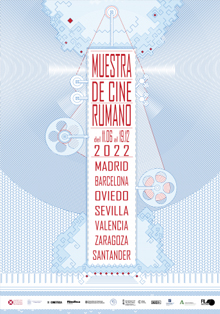Pedro González
Journalist
With almost 220 million inhabitants and the prospect of doubling in two decades, Nigeria is the most populous country in Africa, the one with the greatest economic projection in competition with South Africa, and also the centre of geopolitical gravity in the Gulf of Guinea. It is also the continent’s largest oil producer and was predicted to have a splendid agricultural future, so much so that it was enthroned as the food pantry of at least a dozen neighbouring countries.
Such rosy prospects now have many weaknesses that could not only considerably reduce Nigeria’s macroeconomic picture but also become the epicentre of a major geopolitical outburst.
Last Sunday a new attack was carried out against the Christian community. While celebrating the Pentecost Mass in the church of St. Francis in Owo, Ondo State, a commando of gunmen indiscriminately machine-gunned the parishioners, detonated hand grenades and kidnapped the celebrating priest. Half a hundred more Catholics killed in a country where attacks on people and facilities run by missionaries demonstrate a growing and worrying Christianophobia.
However, it is important not to oversimplify the issue of inter-religious strife as the sole cause of the tension in a country with almost the same proportion of Christians as Muslims (46%), the remaining 8% being divided between the indigenous animist religions. In addition, there are many factors that are bringing the Nigerian magma to boiling point.
Eruption and spread of jihadism
What is distinctive about this latest massacre is that it took place in Ondo, a state in the south of the country, which until now was not in the crosshairs of jihadist violence, concentrated almost exclusively in Nigeria’s northern states, especially Zamfara, Niger, Kaduna, Sokoto, Kebbi, Borno and Yobe. Of all the jihadist groups operating, the hegemonic one was Boko Haram, which had acknowledged submitting to the authority of Daesh. Daesh did not like Boko Haram leader Abubakar Sheaku’s attempt to make his franchise fully autonomous, which triggered a power struggle. Sheaku died in 2021 and many of Boko Haram’s militants have gone over to the ranks of the Islamic State of West Africa, the Daesh branch that already extends its tentacles as far as Cameroon and countries in the Sahel strip such as Niger and Chad.
Without denying the growing Christianophobia, religious missionaries say that inter-religious hatred is used as one more tool, but with great sentimental depth, in a struggle for power and control of the area, in which organised crime is increasingly gaining ground, thanks to its dominance in the very buoyant and unfortunate trafficking of people, drugs, arms and prostitution.
The determining factor of climate change
As if that were not enough, the factor of climate change has burst onto the scene with unprecedented force. Persistent droughts, a marked decrease in rainfall and water supply, and increasingly frequent and gigantic sandstorms are considerably increasing the erosion of the countryside and the consequent lack of productivity of the soil. This factor is particularly decisive in the clashes between Muslims and Christians: the former are massively involved in livestock farming, the latter in agriculture. The loss of pastures in the north due to desertification pushes the “Fulani” (shepherds) to search for more fertile land for their animals, and the inevitable clash when land owned by mostly Christian owners is invaded.
There are increasing testimonies from residents denouncing the absence of Nigerian state power in many large parts of the country, so that organised crime on the one hand, and outright banditry on the other, are turning up-and-coming Nigeria into a serious scenario and hotbed of insecurity.
The country was meant to be a laboratory of inter-ethnic and inter-religious coexistence that would serve as a model for the continent. In view of the facts, it seems that it is not only far from achieving this, but also closer to a major outbreak. On paper, it was nothing new that four different sources of law coexisted in the country: English law, common law, customary law and Islamic law, the latter even with its own Shari’a courts.
Twenty years of Shari’a law have left a discouraging balance sheet of a serious fracture between communities, while at the same time it has boosted the Islamic clientelist network, ostensibly more radicalised and therefore in favour of the pure and simple submission of Christians to its dictates. In other words, to dispossess them of their property, either by degree or by force, after blaming them for the present or future ills that the dominant Islamic community may suffer, a portico under which the assaults, burning and destruction of temples, kidnappings and murders of their Christian rivals are justified.
© Atalayar / All rights reserved






